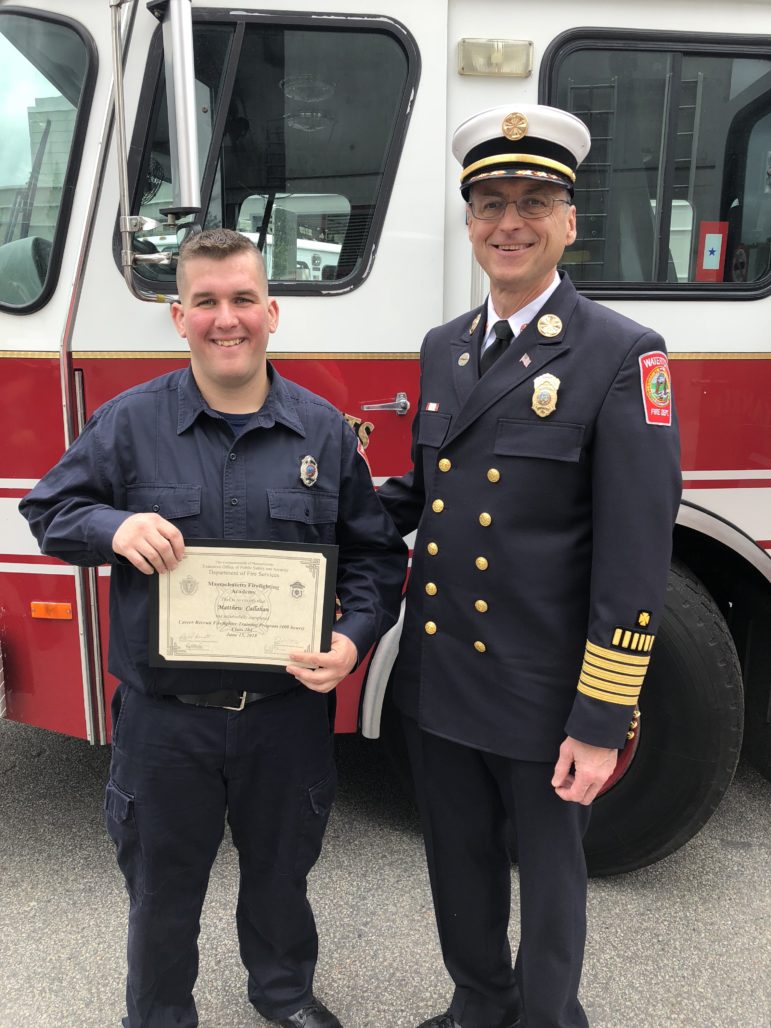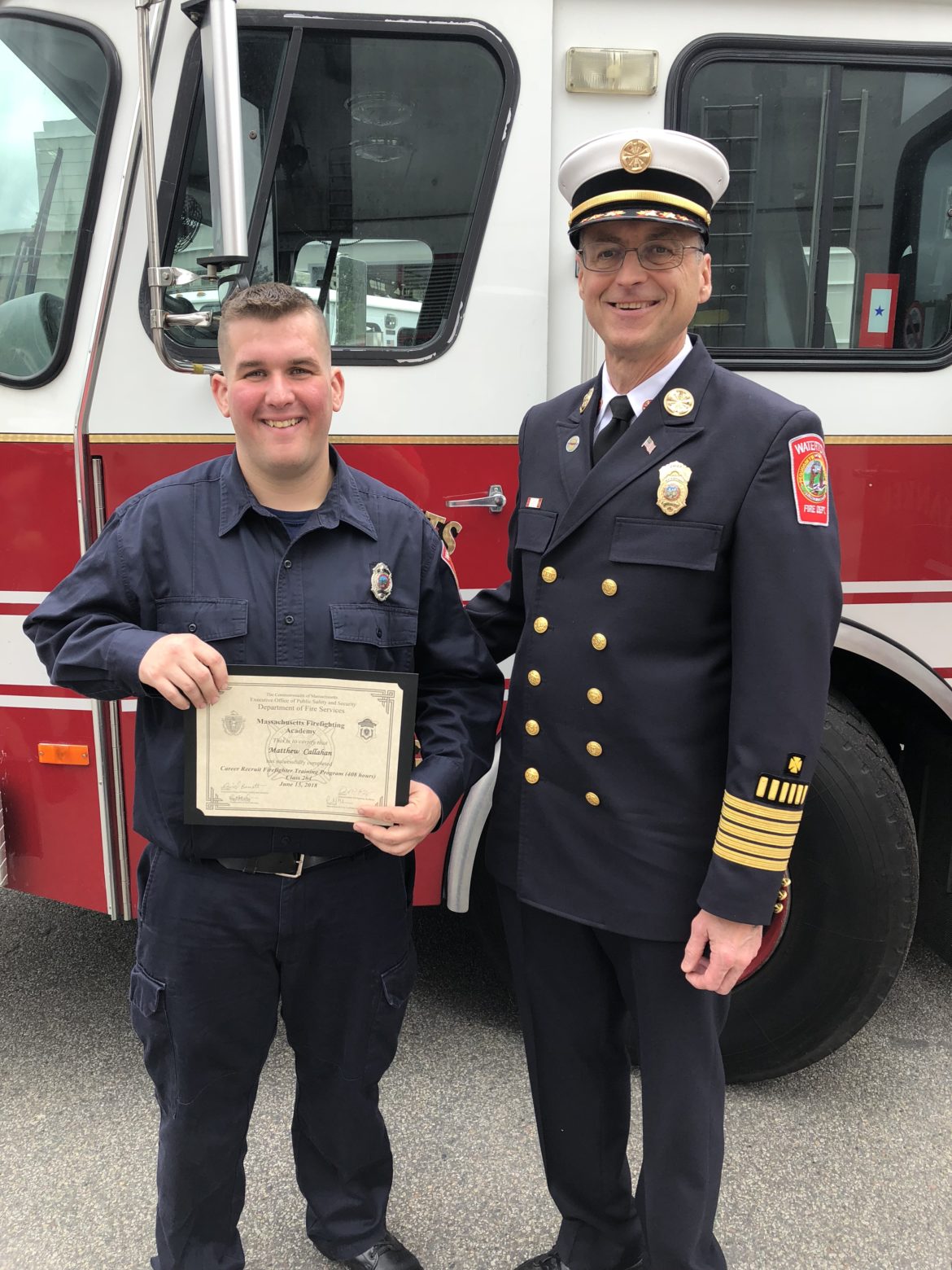
Contributed Photo
Matthew Callahan, left, graduated from the Massachusetts Firefighting Academy in Stow. He is pictured with Watertown Fire Chief Bob Quinn.
Watertown Firefighter Matthew Callahan graduated from the Massachusetts Fire Academy Training 10 week training program. He was one of 35 graduates in the 264th class of the Massachusetts Firefighting Academy in Stow.
Fire Chief Bob Quinn announced the graduation of Watertown’s latest firefighter, who attended the 10-week course.
“Firefighter Callahan will return to work next week to serve the citizens of Watertown,” Quinn said. “We are very excited to have him back.”
The State Fire Marshal’s office provided the following information:
Deputy State Fire Marshal Maribel Fournier and Massachusetts Firefighting
Academy Director David C. Evans announced the graduation of the 264th class of the Massachusetts Firefighting Academy’s fifty-day Career Recruit Firefighter Training Program on June 15, 2018.
“This rigorous professional training provides our newest firefighters with the basic skills to perform their jobs effectively and safely,” said Deputy State Fire Marshal Fournier. The Massachusetts Firefighting Academy (MFA), a division of the Department of Fire Services, offers this program tuition-free. The ceremony took place at the Department of Fire Services in Stow, MA.
35 Graduates from 22 Fire Departments
The 35 graduates, all men, represent the 22 fire departments of: Avon, Bridgewater, Burlington, Danvers, Devens, East Bridgewater, Gloucester, Hyannis, Marblehead, Milton, Nantucket, Natick, Newton, North Andover, Peabody, Sandwich, Seekonk, Somerville, Truro, Walpole, Watertown, and Westminster.
Guest Speaker: Hyannis Fire Captain, Thomas Kenney
The guest speaker was Captain Thomas Kenney, a 35-year veteran of the Hyannis Fire Department. He is a rescue team manager with the Federal Emergency Management Agency’s Urban Search and Rescue (USAR) Massachusetts Task Force 1 and has been deployed to disasters across the United States. Capt. Kenney has written, lectured and trained firefighters on technical collapse rescue. In congratulating the recruits, he introduced them to another of the many different career paths the fire service has to offer.
Today’s Firefighters Do Far More than Fight Fires
Today’s firefighters do far more than fight fires. They are the first ones called to respond to chemical and environmental emergencies, ranging from the suspected presence of carbon monoxide to a gas leak. They may be called to rescue a child who has fallen through the ice or who has locked himself in a bathroom. They rescue people from stalled elevators and those who are trapped in vehicle crashes. They test and maintain their equipment including self-contained breathing apparatus (SCBA), hydrants, hoses, power tools, and apparatus.
At the Massachusetts Firefighting Academy they learn all these skills and more from certified fire instructors who are also experienced firefighters. Students learn all the basic skills they need to respond to fires and to contain and control them.
They are also given training in public fire education, hazardous material incident mitigation, flammable liquids, stress management, confined space rescue techniques, and rappelling. The intensive, 10-week program for municipal firefighters involves classroom instruction, physical fitness training, firefighter skills training, and live firefighting practice.
Basic Firefighter Skills
Students receive classroom training in all basic firefighter skills. They practice first under non-fire conditions and then during controlled fire conditions. To graduate, students must demonstrate proficiency in life safety, search and rescue, ladder operations, water supply, pump operation, and fire attack. Fire attack operations range from mailbox fires to multiple-floor or multiple-room structural fires. Upon successful completion of the Recruit Program all students have met national standards of National Fire Protection Association 1001 and are certified to the level of Firefighter I and II, and Hazardous Materials First Responder Operational Level by the Massachusetts Fire Training Council, which is accredited by the National Board on Fire Service Professional Qualifications.
